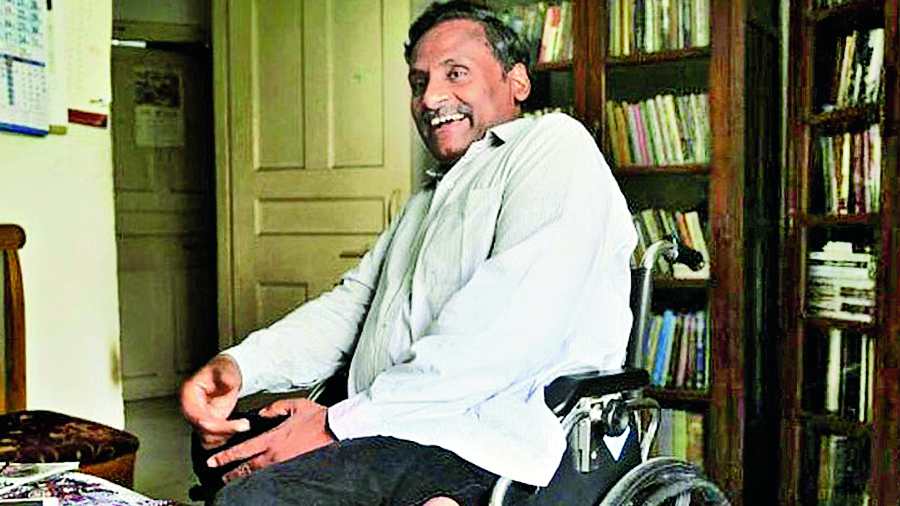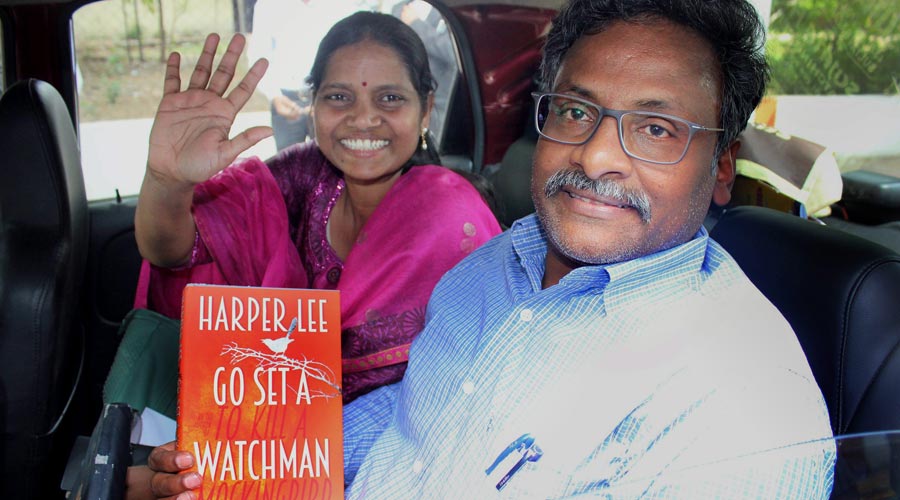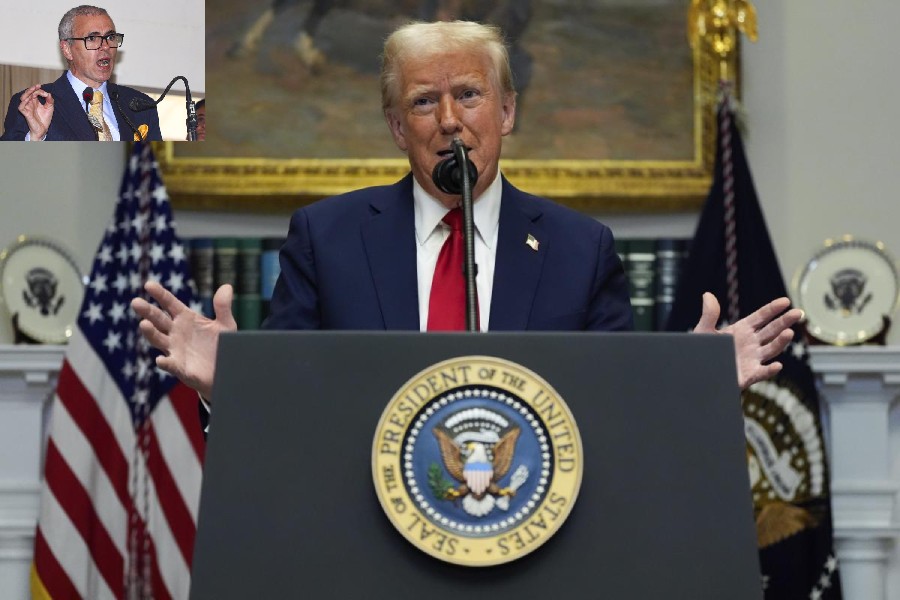Bombay High Court on Friday acquitted former Delhi University professor G.N. Saibaba and five others, including a prisoner who died in custody in August, in a Maoist links case.
Saibaba, a rights defender who uses a wheelchair, has been behind bars since 2014 in what activists said were conditions unsuitable for a disabled prisoner.
The acquittals were pronounced on the ground that the sanction to prosecute the academic under the anti-terror Unlawful Activities (Prevention) Act (UAPA) was “bad in law and invalid”.
The Supreme Court rejected the prosecution’s request for an immediate stay on the acquittal but agreed to hear the National Investigation Agency’s appeal against the acquittal at 11am on Saturday — normally a holiday for the apex court. The prosecution had pleaded that waiting till Monday could lead to Saibaba being released in the interim.
The Nagpur Bench of Bombay High Court had said that Saibaba, 55, who has 90 per cent physical disability and was serving a life sentence, should be released immediately unless his custody was required in any other case.
Following this, Saibaba’s lawyers had said he might be released on Saturday from Nagpur central jail, where he has been lodged since his arrest in 2014.
The high court bench of Justices Rohit Deo and Anil Pansare set aside the 2017 common judgment by a trial court that convicted Saibaba and the others.
Since the sanction to prosecute Saibaba under the UAPA was “bad in law and invalid”, the trial court’s proceedings were “null and void”, the Nagpur bench said, allowing the appeals moved by the five other convicts in the case, too, acquitting them of all charges.
The high court said that while the fight against terrorism was important, procedural safeguards could not be sacrificed “at the altar of perceived peril to national security”.
In March 2017, a sessions court in Maharashtra’s Gadchiroli district had convicted Saibaba and the others, including a journalist and a JNU student, of links with the banned Maoists and of activities amounting to “waging war against the country”.
The sanction to prosecute Saibaba under the Unlawful Activities (Prevention) Act had been granted in 2015, a year after similar sanction was granted against the five other accused who had been arrested before him.
The high court underlined that when the trial court took cognisance of the chargesheet against Saibaba and the others in 2014, there was no sanction to prosecute Saibaba under the UAPA. This rendered the trial court proceedings invalid, it ruled.
Terrorism poses an enormous threat to national security, and vile and abhorrent acts of terror do evoke collective anger and anguish, the judges on the Nagpur bench said.
“While the war against terror must be waged by the State with unwavering resolve, and every legitimate weapon in the armoury must be deployed in the fight against terror, a civil democratic society can ill afford sacrificing the procedural safeguards legislatively provided, and which is an integral facet of the due process of law, at the altar of perceived peril to national security,” the 101-page judgment said.
Saibaba was a Delhi resident at the time of his arrest. Co-accused Mahesh Tirki, 27, and Pandu Pora Narote — who died aged 32 while the hearing of his appeal was pending — were farmers from Gadchiroli district.
Hem Mishra, 37, was a student of JNU who hailed from Almora district of Uttarakhand. Prashant Rahi Narayan Sanglikar, 59, was a journalist from Dehradun and Vijay Tirki, 35, a labourer from Chhattisgarh. Tirki alone had been granted bail.
The high court noted that Narote was dead but cited a past apex court judgment to rule that his appeal “does not abate”.
Activist and lawyer Prashant Bhushan termed the verdict “good news”. He said in a tweet that Saibaba was lodged in the “anda cell” (high-security cell) of the jail despite being disabled and ill.
According to a study by a rights group, only 235 among the 8,371 people arrested under the UAPA between 2015 and 2020 have been convicted, signifying a conviction rate below 3 per cent.
The report, prepared by the People’s Union for Civil Liberties, examined data from the National Crime Records Bureau and the NIA website. It said that many UAPA accused are denied bail but are eventually acquitted.












